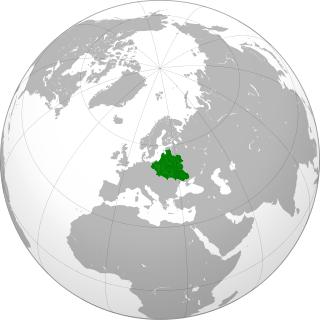Narodowe Siły Zbrojne was a Polish anti-Nazi and later anti-Soviet military organization which was part of Poland's World War II resistance movement. The NSZ fought occupying German and Soviet forces as well as Soviet-allied Polish communist partisan forces such as Gwardia Ludowa and Armia Ludowa.

Armia Ludowa was a communist partisan force set up by the communist Polish Workers' Party (PPR) during World War II. It was created by order of the Polish State National Council on 1 January 1944. Its aims were to fight against Nazi Germans in occupied Poland, support the Soviet military against the German forces and to aid in the creation of a pro-Soviet Union communist government in Poland.

Gwardia Ludowa or GL was a communist underground armed organization created by the communist Polish Workers' Party in German occupied Poland, with sponsorship from the Soviet Union. Formed in early 1942, within a short time Gwardia Ludowa became the largest clandestine fighting force on Polish soil which refused to join the structures of the Polish Underground State loyal to the government-in-exile based in London. In the January 1 of 1944 GL was incorporated into the communist Armia Ludowa.

Rzeczpospolita is a nationwide daily economic and legal newspaper and the only conservative-liberal newspaper in Poland. It is issued by Gremi Media SA.
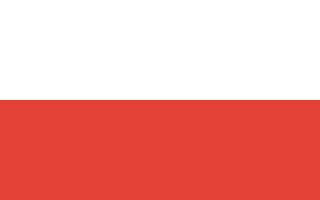
The Provisional Government of National Unity was a government formed by a decree of the State National Council on 28 June 1945. It was created as a coalition between the Polish Workers' Party and Stanisław Mikołajczyk, former Prime Minister of the Polish government-in-exile.
Polish Republic is the official name of the European country Poland. It may also refer to:
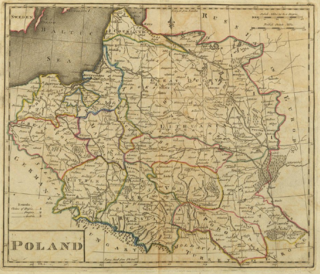
The ethnonyms for the Poles (people) and Poland include endonyms and exonyms. Endonyms and most exonyms for Poles and Poland are usually associated to derive from the name of the West Slavic tribe of Polans (Polanie), also stated by some sources has been the association in some languages for the exonyms for Poland to derive from the name of another tribe – the Lendians (Lędzianie).

God, Honour, Fatherland or Honour and Fatherland is one of the unofficial mottos of Poland. It is commonly seen as the motto of the military of Poland, and has been confirmed as such by several Polish legal decrees. It traces its history to the era of partitions of Poland and Polish service in Napoleonic army.
Gwardia Ludowa WRN was a part of the Polish resistance movement in World War II. Created in 1939 by the WRN faction, since 1940 it was subordinated to ZWZ with a degree of autonomy.
National symbols of Poland are the symbols that are used in Poland to represent what is unique about the nation, reflecting different aspects of its cultural life and history. They intend to unite people by creating visual, verbal, or iconic representations of the national people, values, goals, or history. These symbols are often rallied around as part of celebrations of patriotism or nationalism and are designed to be inclusive and representative of all the people of the national community.
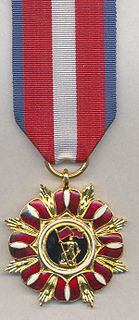
Order of the Builders of People's Poland was the highest civil decoration of Poland in the times of the People's Republic of Poland.
Polish Socialist Party – Freedom, Equality, Independence was an underground political party in occupied Poland during World War II continuing the traditions of Polish Socialist Party.
Rzeczpospolita may refer to:
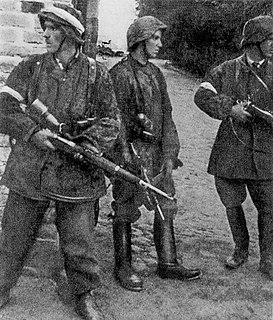
Rzeczpospolita Polska was the official magazine of the Government Delegation for Poland. It was a source of instruction and information for other Polish underground organizations, including other underground publications, operating in occupied Poland.
Rzeczpospolita Polska may refer to:
The Polish People's Party is a Polish agrarian political party.
The Polish People's Army (PAL) was an underground leftist military organization in Nazi-occupied Poland during World War II. It was active between 1943 and 1945. At its peak it numbered several thousand members.

Aleksander Jackowski was a Polish cultural anthropologist, ethnographer, art critic. Author of various works on folk, contemporary, naïve art and l’art brut.


